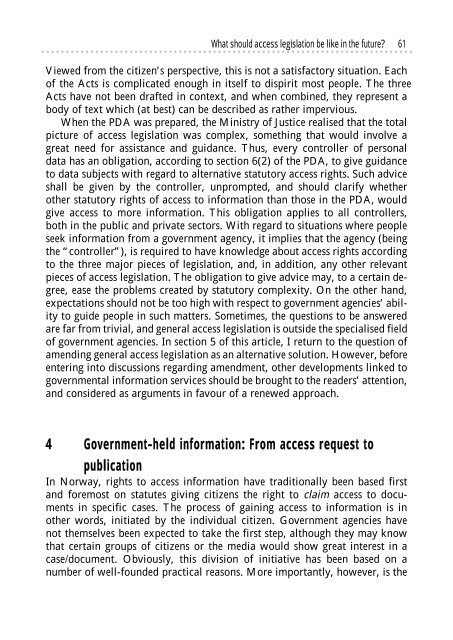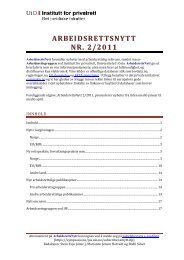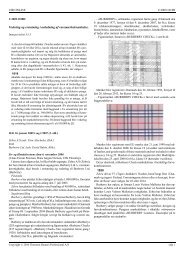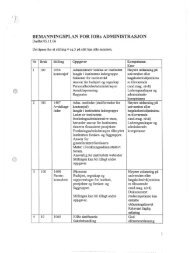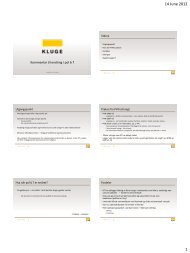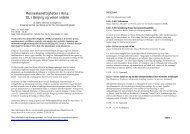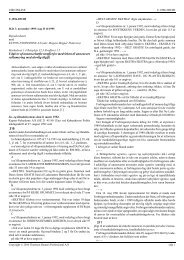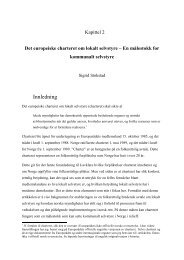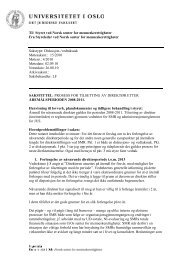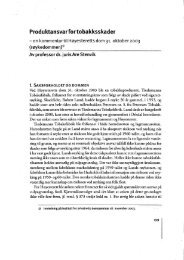Lee A. Bygrave (red.) YULEX 2002 - Universitetet i Oslo
Lee A. Bygrave (red.) YULEX 2002 - Universitetet i Oslo
Lee A. Bygrave (red.) YULEX 2002 - Universitetet i Oslo
You also want an ePaper? Increase the reach of your titles
YUMPU automatically turns print PDFs into web optimized ePapers that Google loves.
............................................................................<br />
What should access legislation be like in the future? 61<br />
Viewed from the citizen’s perspective, this is not a satisfactory situation. Each<br />
of the Acts is complicated enough in itself to dispirit most people. The three<br />
Acts have not been drafted in context, and when combined, they represent a<br />
body of text which (at best) can be described as rather impervious.<br />
When the PDA was prepa<strong>red</strong>, the Ministry of Justice realised that the total<br />
picture of access legislation was complex, something that would involve a<br />
great need for assistance and guidance. Thus, every controller of personal<br />
data has an obligation, according to section 6(2) of the PDA, to give guidance<br />
to data subjects with regard to alternative statutory access rights. Such advice<br />
shall be given by the controller, unprompted, and should clarify whether<br />
other statutory rights of access to information than those in the PDA, would<br />
give access to more information. This obligation applies to all controllers,<br />
both in the public and private sectors. With regard to situations where people<br />
seek information from a government agency, it implies that the agency (being<br />
the “controller”), is requi<strong>red</strong> to have knowledge about access rights according<br />
to the three major pieces of legislation, and, in addition, any other relevant<br />
pieces of access legislation. The obligation to give advice may, to a certain degree,<br />
ease the problems created by statutory complexity. On the other hand,<br />
expectations should not be too high with respect to government agencies’ ability<br />
to guide people in such matters. Sometimes, the questions to be answe<strong>red</strong><br />
are far from trivial, and general access legislation is outside the specialised field<br />
of government agencies. In section 5 of this article, I return to the question of<br />
amending general access legislation as an alternative solution. However, before<br />
entering into discussions regarding amendment, other developments linked to<br />
governmental information services should be brought to the readers’ attention,<br />
and conside<strong>red</strong> as arguments in favour of a renewed approach.<br />
4 Government-held information: From access request to<br />
publication<br />
In Norway, rights to access information have traditionally been based first<br />
and foremost on statutes giving citizens the right to claim access to documents<br />
in specific cases. The process of gaining access to information is in<br />
other words, initiated by the individual citizen. Government agencies have<br />
not themselves been expected to take the first step, although they may know<br />
that certain groups of citizens or the media would show great interest in a<br />
case/document. Obviously, this division of initiative has been based on a<br />
number of well-founded practical reasons. More importantly, however, is the


